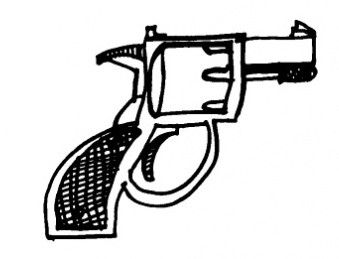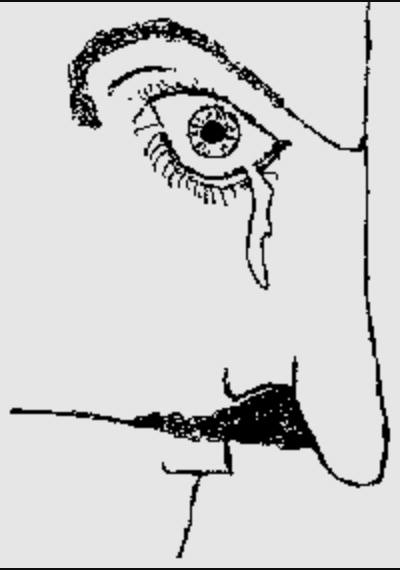Book Review: Breakfast of Champions by Kurt Vonnegut
September 5, 2018
In Breakfast of Champions by Kurt Vonnegut, we find ourselves in the asshole of the universe.
There is no need for subtlety here. Vonnegut dives into his 1972 novel with a pointed list of the offenses committed by the United States of America, including but not limited to the lyrical balderdash called “The National Anthem”, the cryptic “baroque trash” on the dollar bill, the atrocity of “1492”, and the national tragedy which was slavery.
Yet he makes it all sound like child’s play, as if to speak of it in any other way would be too much for the soul to handle.
Breakfast of Champions continues in this manner, both playful and sinister, while maintaining classic Vonnegut style and increasing intensity throughout. At times, it is hard to say if the pain in my side was from laughing out loud at Vonnegut’s frequent forays into the absurd, or from the gut wrenching view into the heart of humanity, as he lifts the curtain and trots offstage, a piece of toilet paper still dangling from his bare ass.

Kurt Vonnegut’s Asshole.
Oh yeah, and did I mention the illustrations? As if the written word is not enough, Vonnegut peppers Breakfast of Champions with felt tip drawings — of which he openly admits to being grotesque and immature. The illustrations saturate the novel with comic relief — that is, until they stop being funny.
Every so often one of Vonnegut’s drawings would grip my moral fiber and tug at it hard, as if to say “Look at this! Look at it!! This is your civilization! This is you!!”
Dwayne’s bad chemicals made him take a loaded thirty-eight caliber revolver from under his pillow and stick it in his mouth. This was a tool whose only purpose was to make holes in other human beings. It looked like this:

In Dwayne’s part of the planet, anybody who wanted one could get one down at his local hardware store. Policemen all had them. So did the criminals. So did the people caught in between.
Breakfast of Champions was written in 1973.
So why would anyone want to read a book that makes them feel so miserable? Why would anyone choose to stare in to a light so bright that they might end up wishing they were blind?
The best case scenario for Breakfast of Champions is that an immature bully named America stumbles upon the book, ingests it recklessly —like a tab of LSD — finds a mirror, and gets lost in the bending of her own light, awakening to the crooked lines in her face and the nature of her being.
Vonnegut, of course (and despite being a prominent character and voice in his own book), knows that this is absurd. He intelligently removes his own success criteria from that of Breakfast of Champions itself. He makes clear the improbable nature of an American awakening in two ways.
First, he brings into the fold an old favorite: Kilgore Trout, the obscure and wonky science fiction writer who, after lending his short stories to a pornographic publication (to provide filler pages, making the magazines thicker and more likely to sell), is discovered by a malignant millionaire named Eliot Rosewater, who happens to be the first to discover Trout’s writing. And he is a big fan.
By Rosewater’s request, Trout makes his way to the Midland Festival for the Arts (Midland is a fictional, quintessentially American town in Michigan), which sets off the chain of events that eventually leads to Kilgore Trout being recognized as one of the most beloved and respected human beings in history. This outlandish suggestion is Vonnegut’s insistence that he will fail. An insistence that in order for the truths in this book to be taken seriously by a country so broken, a planet so damaged, it would truly take a miracle.
Second, Vonnegut tells us so. He is quite serious about the idea of humans as programmed machines, who’s chemicals tilt the scale between “normalcy” and insanity. I quote at length a passage from the preface of Breakfast of Champions, because it sums up so well who the author is and the gift that he imparted into the world. Vonnegut gift was the ability to spin the ugliest of situations into stories of hope, leaving us not with despair but laughter — albeit nervous — in the face of otherwise unbearable pain. As a boy in Indianapolis, Vonnegut was frequently subjected to the sight of men suffering from the last stages of syphilis, from locomotor ataxia. In one such encounter we get a glimpse into a formative experience of a young Kurt Vonnegut. He is given the opportunity to withdraw in disgust or disbelief, but chooses a different path…
I saw one stand on a curb at the corner of Meridian and Washington streets one time, underneath an overhanging clock which my father designed. The intersection was known locally as “The Crossroads of America.”
This syphilitic man was thinking hard there, at the Crossroads of America, about how to get his legs to step off the curb and carry him across Washington Street. He shuddered gently, as though he had a small motor which was idling inside. Here was his problem: his brains, where the instructions to his legs originated, were being eaten alive by corkscrews. The wires which had to carry the instructions weren’t insulated anymore, or were eaten clear through. Switches along the way were welded open or shut.
This man looked like an old, old man, although he might have been only thirty years old. He thought and thought. And then he kicked two times like a chorus girl.
He certainly looked like a machine to me when I was a boy.
America is sick and our wiring is broken. We were born to love, but programmed to hate. Our infection is contagious and we are in the late stages of both disease and denial. Our prognosis is dire and it would take a miracle to save us.
As Vonnegut sits in the ICU where America snores, drooling and doped up on painkillers, he shows us humanity-at-large, humanity within, and the humanity of a bold but ultimately gentile and caring author. The fact that he does so with a humans-as-machines narrative is where the magic happens. It’s an oddly compelling narrative: convincing, and masterfully delivered.
In the cathartic epilogue, the science fiction writer Kilgore Trout meets his maker. As Kurt Vonnegut pulls up to Trout in a rental car in an attempt to reveal himself to his own character, he fumbles for the car’s overhead light and misses it. He turns on the windshield washer instead, tries again… misses again. In this scene his self awareness and humility is apparent. Nothing is off limits for Vonnegut, including his own quirks and clumsiness.
Then he comes clean to Mr. Trout as his creator, and apologizes for breaking his mind to pieces. In a scene that feels oddly serene after the tumultuous novel, Vonnegut announces his love for Trout, and his intention to make him feel a “wholeness and inner harmony such as I have never allowed you to feel before.”
After Breakfast of Champions, I remain hopeful. Of all the humans that have called America home, few are more torn up about it than Vonnegut was. Yet even with his cursed awareness, he manages to brush up again inner peace. Breakfast of Champions is Mr. Vonnegut’s 50th birthday present to himself. In it, he is “cleansing and renewing [him]self for the very different sort of years to come.”
The tendency he harbored is a gift to humanity: the will to try and make sense of this world even when he knows that his efforts are doomed from the start.
God bless Kurt Vonnegut, who is programmed to write.

This piece was originally published on September 5, 2018 on Medium